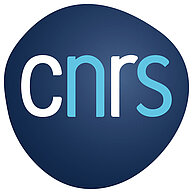Lexicon
Lexicon “Sex and Gender in Antiquity”
This online lexicon represents the continuation by the EuGeStA network of the work begun at the conference on “Sex and Gender in Antiquity: Questions of Naming”, published in the third issue of the journal Eugesta. The aim of the conference was to undertake an inquiry into the meanings and values attached to specific words and expressions designating or applied to women and men and which provide evidence of the ways in which the difference between the sexes was conceived in Antiquity.
This lexicon is organised in the form of entries of about 1500 words maximum
- on a common noun, a verb, an adjective, a metaphor, a name, a cult epithet…
- containing a study of its usage in Greek or Roman culture
- in different domains of thought and knowledge: literature, philosophy, history, religion, medicine….
- on the basis of texts or epigraphic evidence from particular periods
Each entry is preceded by a title indicating the term (or expression or image) in question, the body of documents studied (ancient author(s), work, literary genre, inscriptions….) and the name of its author.
This lexicon aims to offer the broadest possible panorama in terms of chronology (from Archaic Greece to Late Antiquity), with the greatest possible precision (thanks to the contextualisation of each linguistic usage studied) and the widest variety (thanks to the multiple perspectives that will be brought by different scholars).
The multiple perspective will be ensured by the existence of several different entries for single terms and by the ability to discuss each entry via the discussion list “Sex and Gender in Antiquity”.
You can leave a message
- to comment on one of the linguistic entries of the Lexicon section of EuGeStA’ website
- to propose new entries to be included in this section.
This list functions by email: each message sent is circulated to all the members of the list and automatically archived on the site where the discussion of each term is freely accessible.
To subscribe to the discussion list and participate in the lexicon, click here and sign up with your email address.
> Go to the Lexicon entries’ page


